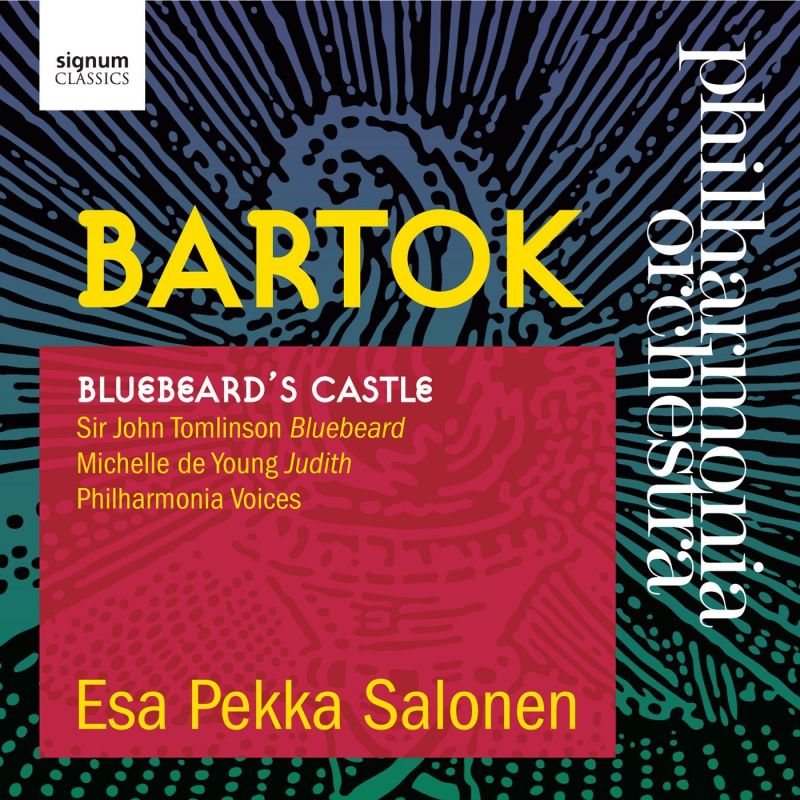BARTÓK Duke Bluebeard's Castle
View record and artist detailsRecord and Artist Details
Composer or Director: Béla Bartók, Esa-Pekka Salonen
Genre:
Opera
Label: Signum Records
Magazine Review Date: 07/2014
Media Format: CD or Download
Media Runtime: 67
Mastering:
DDD
Catalogue Number: SIGCD372

Tracks:
| Composition | Artist Credit |
|---|---|
| Duke Bluebeard's Castle |
Béla Bartók, Composer
Béla Bartók, Composer Esa-Pekka Salonen, Composer John Tomlinson, Duke Bluebeard, Bass Juliet Stevenson, Narrator Michelle DeYoung, Judith, Mezzo soprano Philharmonia Orchestra Philharmonia Voices |
Author: Rob Cowan
Tomlinson himself tends to favour a dry, ‘lowing’ delivery, at times suspending vibrato. Try 3'11" into tr 1, where he invites Judith to answer his request to join him; and when he repeats his invitation, he seems almost desperate – needlessly, as it happens, because Michelle DeYoung sounds more than willing. Thereafter, Salonen pushes for some fierce accents while keeping the undulating Prologue restlessly on the move. Tomlinson suggests real menace when he asks Judith why she made the visit (tr 1, 8'54"); and when she hammers on the first door three minutes later, the Philharmonia Voices do their bit with a ghostly sigh. As the subsequent doors open, Salonen and his players take centre stage, the instruments of torture sounding almost graphic in their impact, before the pace dips and the sunrise temporarily breaks through.
DeYoung is at her best as she glides effortlessly among the flora and fauna of Bluebeard’s garden, while her lacerating C as the fifth door flies open to reveal Bluebeard’s vast and beautiful kingdom is breathtaking. There’s a very audible organ, too. The final climax is overwhelming because Salonen understands so well how the music must simultaneously rise to greet her and express Judith’s tragedy.
Sound-wise, the score’s vast dynamic curve is truthfully reproduced and while I would unhesitatingly recommend this recording for the sake of Michelle DeYoung, Salonen and the Philharmonia, Sir John’s post-prime Bluebeard, although rich in drama and theatrical presence, can’t compare with the best of his former selves, most notably under Bernard Haitink, with Anne Sofie von Otter and the Berlin Philharmonic on EMI. For opera-in-English fans, the Farnes recording is pretty impressive, too.
Discover the world's largest classical music catalogue with Presto Music.

Gramophone Digital Club
- Digital Edition
- Digital Archive
- Reviews Database
- Full website access
From £8.75 / month
Subscribe
Gramophone Full Club
- Print Edition
- Digital Edition
- Digital Archive
- Reviews Database
- Full website access
From £11.00 / month
Subscribe
If you are a library, university or other organisation that would be interested in an institutional subscription to Gramophone please click here for further information.




